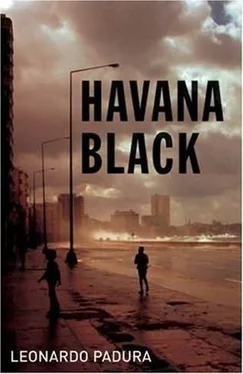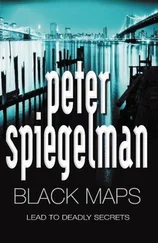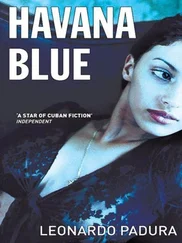The last day he played baseball, the Count felt he could hardly lift his arms up and failed three times with the bat when it was his turn at the end of the eighth innings and they were trailing two zero to the Philology Tigers. Because of a mistake, a base and a dead ball, the Count had a historic opportunity to enter the batter’s box with the possibility of an advantage at first base, even though two of his team were out and it was at that precise moment that he suffered one of his first memorable hunches: like all his colleagues, the Count now preferred to use one of those newfangled aluminium bats, which were considered more efficient and sturdier than the old wooden bats. But his hunch warned him that perhaps the old scorned bat made of green-veined majagua hardwood that nobody now used might be the only one able to achieve the miracle and save that last championship game – which, without his imagining it, would also be the last time he’d play. Before the astonished gaze of his colleagues and shouts of alarm from Skinny Carlos, who was still skinny and who almost hurled himself from the terraces to stop his friend committing such an idiocy, the Count slung his aluminium bat to the ground, went over to the bench for the wooden bat and got ready to bat. After passing on two hits, making no attempt to strike the ball, in spite of Skinny shouting, “Hit it, for fuck’s sake,” the Count looked towards Carlos and calmly executed the dramatic ritual he’d practised in his years as an amateur playing for fun: he asked the referee for some time, moved away from the home-plate, picked up some earth in one hand and spat in the other, rubbed them both together and wiped them on the backside of his trousers. After that he placed the blade of the bat between his legs and cleansed it of impurities, rubbing it on the material, before he spat once more on the ground and returned to the batter’s box, where he played out the final act of his mise en scène : he scratched his balls and looked Dog, the Philology Tigers’ best pitcher, in the face… Only someone whose wrists have felt the crisp thud of solid ball against compact wood, produced in a microfraction of a second, one that can send the white sphere flying amazing distances, is endowed with the understanding of what Mario Conde felt at that moment when he steadied himself, carried through his swing and the blade of the bat hit the ball and sent it hurtling into the far depths of the park on the right, so he could run like crazy round the bases, as if he hadn’t been doing baseball, football, basketball and athletics for almost twenty-four hours a day throughout the whole week, and calmly reach third base, to the jubilant cries of a skinny Carlos, who had thrown himself on the pitch shouting: “Fuck, what you need is real balls!” and hugged the Count’s three companions who had scored thanks to his great batting, which put the game at three – two in favour of the Psychologists, who finally won their only game the day Mario Conde played baseball for the last time, in the 1977 University Games.
“So what’s the story on the bat?”
Sergeant Manuel Palacios nodded and the Count felt a shiver run down his spine: the adrenalin hoping that that bat might tell the whole story, ending up in the hands of Adrian Riverón, a batter of forbidden balls, was similar to the adrenalin hoping the other guy would be guilty and not that useful suitor. Once again his policeman’s craft confronted him with the sordid evidence of human intrigue that transcended the limits of what was permissible and wrecked people’s lives for ever: and he started to function again as the choreographer of that performance, giving it a final structure, finding a sadly satisfactory end before the definitive fall of the curtain.
“That was the bat,” said Manolo, flopping into the armchair where Miriam had been sitting.
The sergeant, who was always alert, now seemed tired, bored or disappointed.
“What’s the matter, Manolo?”
“You’ve found Miguel Forcade’s killer. Now you’ll leave the force. Hey, is that really what you want to do?”
“Uh-huh,” mumbled Mario Conde after a moment, and he tried to redirect the conversation. “What did they find in the laboratory?”
“First of all, the fingerprints are all Riverón’s, so he was the only one to touch the bat. Secondly, the blood: although the blade of the bat was wiped with a cloth soaked in spirit, there were blood cells on the wood fibres. The blood group was O, the same as Forcade’s. Finally, other traces of blood were found on the bathroom floor that the water hadn’t washed away and they are also O, and it’s almost certain they belonged to the dead man.”
The Count left his armchair to look out of the window: gusts of wind were beginning to comb the tops of the trees, as a precursor of worse evils to come. In the churchyard, on the other side of the street, skirts and coifs blowing in the wind, nuns were nailing planks on the doors to the holy precinct, to prevent the tentacles of the Evil One entering the Lord’s house in the form of rain and wind. This was an autumn landscape different from the one imagined by Matisse, in rational, measured Europe: the tropical sign of autumn had nothing in common with leaves that fell at a precise change in the seasons or light filtered through high clouds. The trees the Count could see never let go of their leaves if a force superior to gravity didn’t snatch them away, and the light in the country had only two real dimensions: either the intense blue of a clear sky, able to flatten objects and perspectives, or the deep grey of the storm, which mired the atmosphere and brought on nightfall. But the hurricane now pushing against the island’s southern coast, wanting to take it with her, was the most tragic climax to autumn in that part of the world where nature was dispensed in exaggerated measures: rain, wind, heat, thunder and waves, and where evergreen leaves only fell under the weight of those catastrophic arguments. It was a nature that periodically decided to demonstrate to man his inability to control her and warn of her infinite scope for revenge.
“I don’t really understand why the asshole never got rid of the damned bat… Well, Adrian is well and truly fucked now,” was the verdict delivered by the Count, and he asked him to bring in the man who’d been Miriam’s first boyfriend, her great love for more than fifteen years, to ask him to tell the truth. A truth perhaps beyond fake pictures and authentic statues, and able to drive ambition and deceit: because Adrian had perhaps only killed for love. In the end the truth was pathetic.
A pale and sweaty Adrian Riverón coughed as he always coughed, and asked the Count: “What do you want to know?”
“You really don’t want a cigarette?”
“I told you I never smoke…”
“Just as well.”
“Go on, tell me…”
“No, you tell me: how and why did you kill him?”
The man still found the energy to smile, and lifted up the packet, asking the lieutenant’s permission to take a cigarette. The Count nodded, with the knowledge that he was finally nearing the truth, and also raised a cigarette to his lips.
“The fact is Miriam doesn’t like me smoking. It’s not good for me, you know. I had to give up rowing because of tobacco.” He paused, adding: “I killed him because he tried to hit Miriam.”
“Don’t try to justify yourself, Adrian. I only require the truth, please.”
“That is the truth: Miguel and Fermín were coming to my place at nine. Fermín spoke to me about possibly leaving the country on a motor launch, taking something out that would earn me in the region of a hundred thousand dollars in Miami. I agreed right away. And I told him I had two reasons: because if I went I could be near Miriam, and because, ever since Miguel Forcade threw me out of Planning, I’d never been able to lift my head in this country. It didn’t matter if afterwards Miguel defected to Spain or Gómez de la Peña was defenestrated: my file says I’m not to be trusted and no boss of any important enterprise will take a risk with me, do you understand? Well, you know what my line of business is… That was why I wasn’t bothered if I had to deal with Miguel Forcade and see his cynical face again, if it was a means to get what I wanted.
Читать дальше











